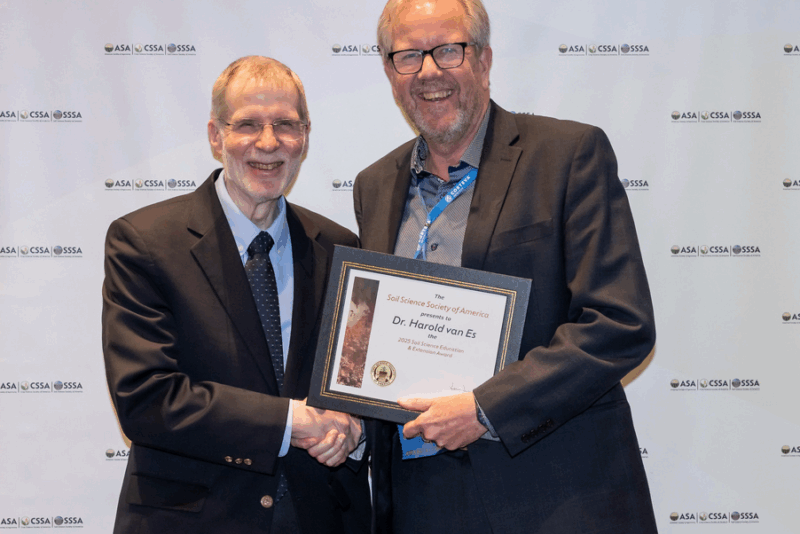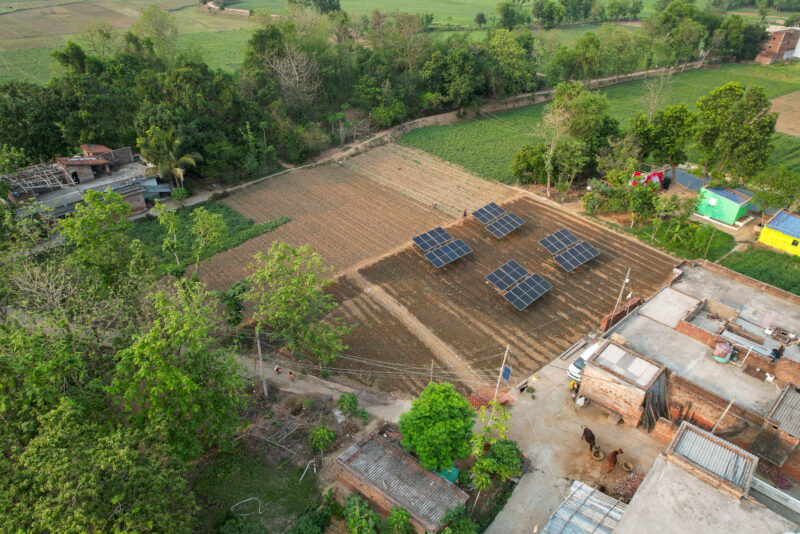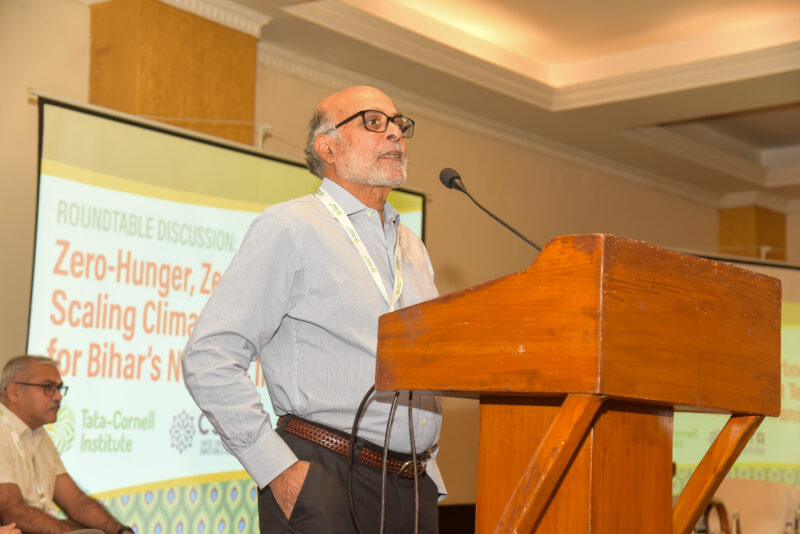In Bihar, a TCI-Supported Lab Raises Awareness of Soil Health
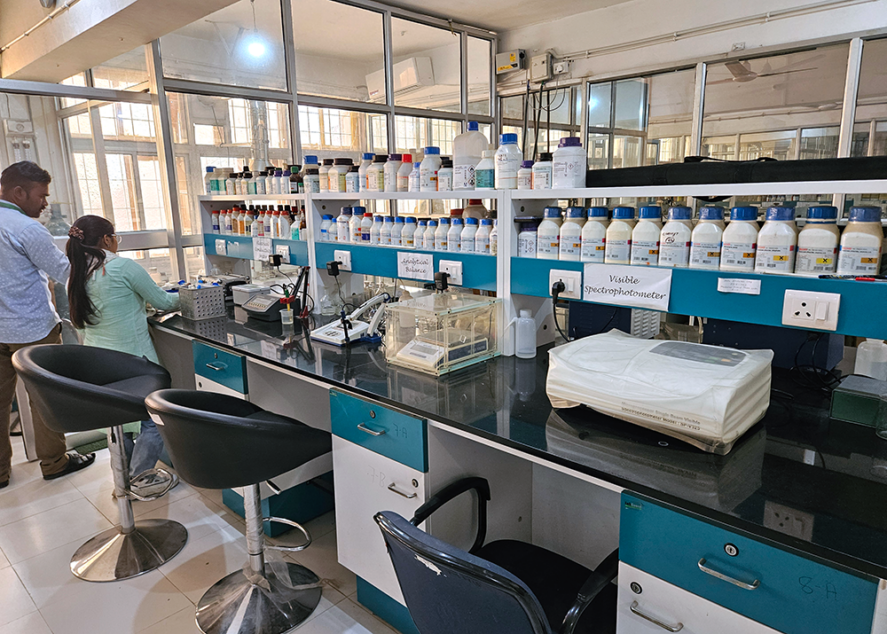
One of TCI’s longest-running projects, “Optimizing Soil Health” established a partnership with the Dr. Rajendra Prasad Central Agricultural University (RPCAU) in Bihar that is educating young soil scientists and undertaking critical studies of soil health and agricultural production in Bihar under the guidance of Ranjan Laik, a professor in the university’s Department of Soil Science.
“We worked with Dr. Laik to establish the first comprehensive soil health laboratory in India,” said TCI Faculty Fellow and Professor of Soil and Water Management Harold van Es, who also played a lead role in establishing the lab. “Through the work of several Cornell and RPCAU graduate students, this successful collaboration gave new insights into improved soil and crop management approaches in Bihar.”
TCI formalized a relationship with RPCAU in 2017 to build a cutting-edge soil health lab on its campus in Pusa. Over the course of a year, Cornell researchers and TCI scholars transported and set up lab equipment that was unavailable anywhere in Bihar. When complete, the lab empowered scientists at RPCAU to analyze and assess the biological, chemical and physical properties of soil samples.
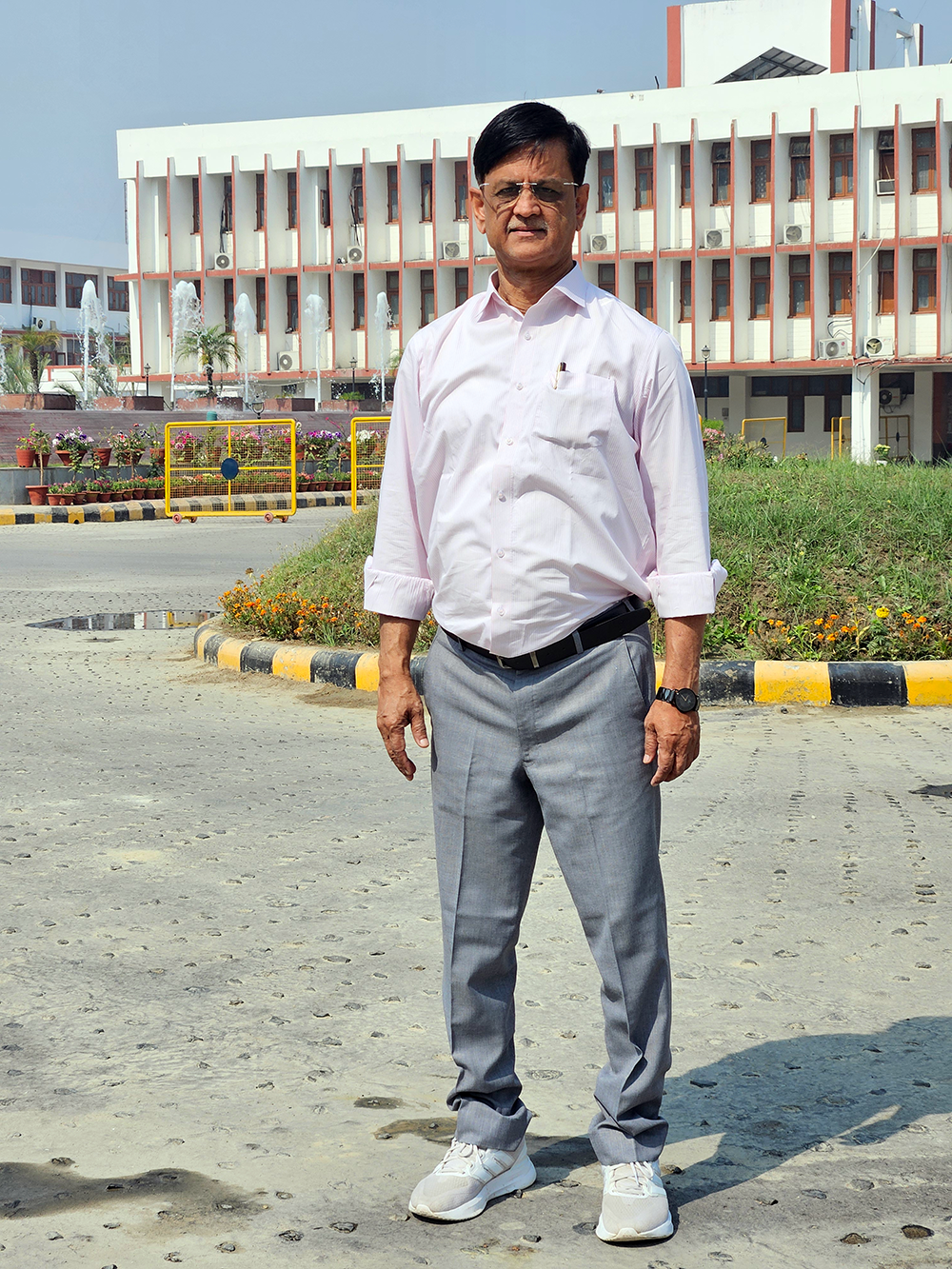
A professor in the Department of Soil Science at RPCAU, Ranjan Laik oversees the soil health lab. (Photo provided)
“Intensive cultivation and tillage operations have degraded the soil health status of Bihar, thus the response of fertilizer applications is going down and farmers are not getting the desired economic return,” Laik said. “The soil health laboratory in Bihar is needed in order to create awareness about soil health, improving fertilizer-use efficiency and making the right interventions in crop production among farmers.”
In the seven years since the lab opened, its researchers have produced a substantial amount of research, resulting in 11 studies published in peer-reviewed journals. One such study identified deficiencies in soil health in multiple cropping systems across Bihar’s different agroclimatic zones and the main factors causing gaps between cultivated and uncultivated soils. “This study offers a comprehensive strategy towards minimizing soil health gaps using data analytics,” Laik said.
The lab has also made progress in developing a reliable method for assessing soil health in Bihar, identifying different variables and indicators that most affect soil health in the state’s varied agro-ecological contexts. Researchers also developed a method of predicting soil quality parameters using spectroscopy.
Another study assessed the impact of “conservation agriculture”—practices that include minimum tillage, residue management and crop diversification—and found that it resulted in significant yield increases compared to current practices in the Eastern Indo-Gangetic Plain. A different study found that the application of zinc, along with the incorporation of crop residue, significantly improves soil’s biological properties and organic carbon levels.
Dozens of students have been trained at the lab. During an initial opening workshop in July 2018, 20 MSc and 10 PhD students learned to use the new equipment and received instruction on the comprehensive assessment of soil health framework developed at Cornell. Four PhD and three MSc students have used the lab to conduct soil health research since then, and two students are currently doing such research. About 10 others have also used the lab to analyze soil samples, according to Laik.
Featured image: The soil health lab at RPCAU has testing equipment that can’t be found elsewhere in Bihar. (Photo provided)



